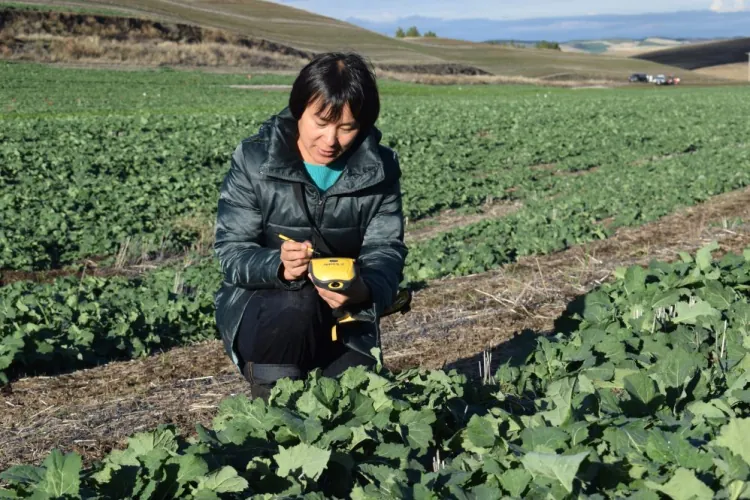Innovations in Soil Science: Dr. Haiying Tao's Impact on Agriculture
How Dr. Haiying Tao's research in soil science and precision agriculture is transforming farming practices and USDA guidelines

- Introduction
- Brief overview of Dr. Haiying Tao’s contributions to soil science and precision agriculture.
- Educational Journey
- From China Agricultural University to UConn.
- Research Impact and Innovations
- Introduction to FRST and its significance.
- Precision agriculture techniques and their benefits.
- Teaching and Real-World Applications
- Mentorship and knowledge transfer to agriculture students.
- Precision Agriculture: A Closer Look
- Detailing the grid system and its application in farming.
- Software Development for Efficient Farming
- The goal of developing user-friendly agricultural software.
- Updating Fertilization Guidelines
- The need for modernized crop fertilization recommendations.
- Support from Land-Grant Universities
- The role of institutions like UConn in supporting farmers.
- Conclusion
- Summarizing Dr. Tao’s contributions and the future of agriculture.
- FAQs
- Common questions about soil science and precision agriculture.
Introduction
Meet Dr. Haiying Tao, a pioneering figure in the realm of soil science and precision agriculture. With her profound research and innovative approaches, Dr. Tao is reshaping agricultural practices, making them more efficient and sustainable. This article delves into her journey, her impactful work, and how it benefits farmers and the USDA alike.
Educational Journey
Dr. Haiying Tao's academic pursuits in agriculture span two continents. Her journey began at China Agricultural University, leading to a Ph.D. in Soil Science from UConn. Today, she's a respected figure, dividing her time between research fields and mentoring students at the College of Agriculture, Health, and Natural Resources.
Research Impact and Innovations
Dr. Tao's current focus, the Fertilizer Recommendation Support Tool (FRST), stands as a testament to her dedication. Funded by the USDA, FRST aims to modernize soil fertility databases, enhancing crop yield outcomes through precise nutrient management.
Teaching and Real-World Applications
Beyond research, Dr. Tao's influence extends to the classroom, where she equips students with the tools to convert agricultural challenges into solutions, thereby fostering a new generation of farming professionals.
Precision Agriculture: A Closer Look
Precision agriculture, a cornerstone of Dr. Tao's work, employs a grid system to optimize fertilizer application. This technique not only conserves resources but also caters to the specific needs of different soil sections, thereby boosting crop production efficiency.
Software Development for Efficient Farming
Looking ahead, Dr. Tao envisions creating software that simplifies the formulation of fertilization strategies for farmers, making precision agriculture more accessible and actionable.
Updating Fertilization Guidelines
Through FRST, Dr. Tao is pivotal in updating the nation's crop fertilization guidelines, integrating contemporary agricultural needs with environmental sustainability.
Support from Land-Grant Universities
Dr. Tao's efforts are part of a broader initiative by land-grant universities to support the agricultural sector amidst challenges like climate change and economic fluctuations, highlighting the importance of academic support in agriculture's future.
Conclusion
Dr. Haiying Tao's commitment to advancing soil science and precision agriculture is instrumental in shaping a more sustainable and productive agricultural future. Her work not only supports the immediate needs of farmers but also aligns with broader environmental goals.
FAQs
- What is precision agriculture?
- How does FRST benefit farmers?
- What role do universities play in agricultural innovation?
Dr. Tao's contributions to soil science and precision agriculture are critical in meeting today's agricultural challenges. For further insights into the world of agriculture, visit Kiksee Magazine, where innovation meets tradition in the field of agriculture.
What's Your Reaction?






















